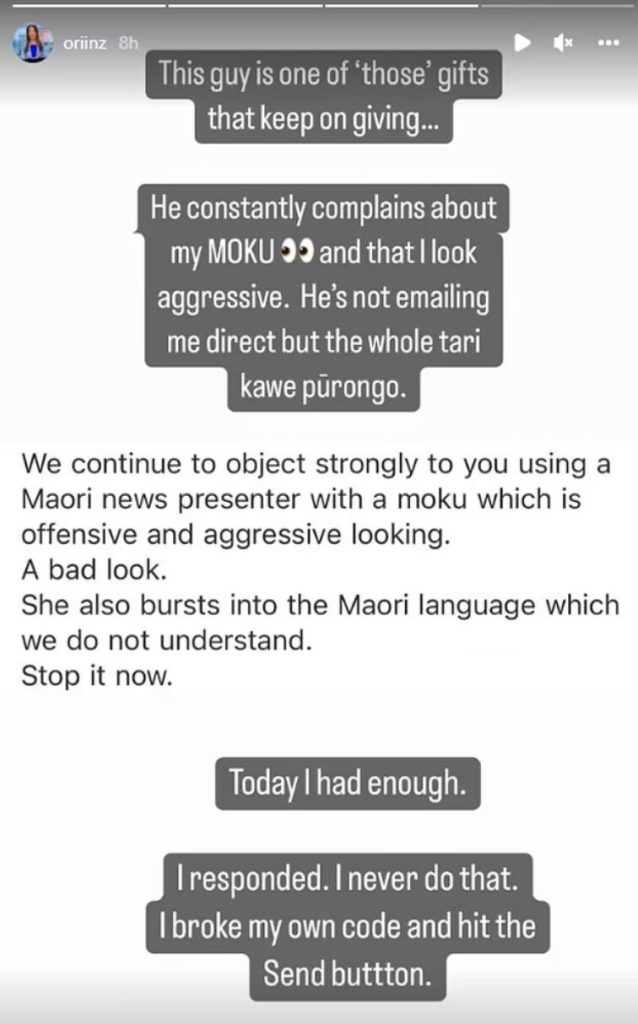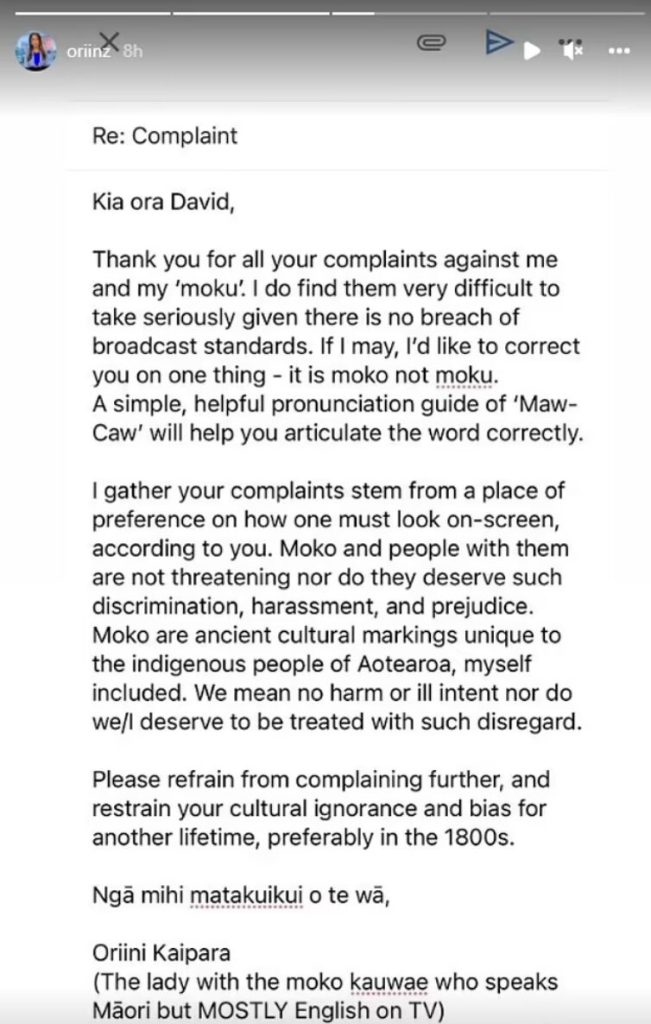TV Presenter with Traditional Māori Tattoo Gracefully Shuts Down Criticism, Celebrates Cultural Pride
A trailblazing television presenter has responded with poise and pride after receiving negative comments about her traditional Māori face tattoo, turning criticism into a powerful statement of identity.
Facial tattoos often spark debate on social media, with some questioning their place in modern media. Yet, many recognize their deep cultural roots and significance—especially within Indigenous communities.
Oriini Kaipara, 41, made headlines as the first primetime news anchor on New Zealand’s Newshub to wear a moko kauae, a sacred facial tattoo worn by Māori women. Her presence on screen is more than historic—it’s a proud symbol of heritage and strength.
For the Māori, the Indigenous Polynesian people of New Zealand, moko kauae is far more than body art. Etched on the chin and lips, these markings are powerful expressions of identity, lineage, leadership, and mana—honoring a woman’s ancestral ties, status, and role within her community.
Kaipara’s dignified response to online trolls is a reminder that cultural pride, especially in the face of ignorance, speaks louder than hate.

TV Presenter Oriini Kaipara Gracefully Responds to Viewer Backlash Over Her Māori Tattoo
While Oriini Kaipara has received widespread praise for proudly wearing her moko kauae on national television, not everyone has embraced her cultural expression.
One viewer, identified as David, sent an email to Newshub expressing his disapproval. “We strongly object to having a Māori newsreader with a moko that appears offensive and aggressive,” he wrote, according to the Daily Mail. “It’s not a good look. She also switches to Māori, which we don’t understand. Please stop it.”
Rather than staying silent, Kaipara chose to confront the negativity head-on—responding with authenticity and grace. She shared screenshots of the email in her Instagram story and offered a rare personal reflection.
“Today, I reached my limit. I decided to respond, which I rarely do,” she wrote. “I broke my own rule and hit send.”
Her bold move not only shut down ignorance but also reignited conversations around representation, respect, and the power of embracing one’s roots—especially in the public eye.

Kaipara’s Powerful Response Calls Out Cultural Bias and Defends Her Identity
In a bold yet composed reply, Kaipara addressed David’s complaint directly, stating she couldn’t take it seriously—especially since it violated no broadcasting standards.
She didn’t miss the opportunity to correct him either, pointing out his misspelling of moko as “moku,” subtly underscoring his lack of cultural understanding.
In her response, Kaipara wrote:
“It seems your complaints arise from your personal preferences regarding how individuals should appear on-screen. Moko and those who wear them are not a threat and should never be subject to discrimination, harassment, or prejudice.”
She continued, with unwavering grace:
“We harbor no ill will or harmful intentions, nor do we—I—deserve to be treated with such disrespect.”
Closing her message with a pointed yet dignified rebuke, she added:
“I kindly ask you to stop filing complaints and to set aside your cultural ignorance and bias—ideally returning to a mindset from the 1800s.”
Kaipara’s thoughtful yet firm response resonated widely, serving not only as a personal defense but as a broader stand for cultural respect and representation.

Kaipara Stands Tall Amid Criticism, Calls for Greater Māori Representation
Despite David’s harsh words, Oriini Kaipara made it clear that negative feedback is the exception—not the norm. The majority of responses she receives, she said, are overwhelmingly supportive.
In a follow-up interview with the New Zealand Herald, Kaipara reflected on the incident and emphasized the need for stronger Māori visibility in media and leadership roles.
“The fact that my presence provokes some individuals underscores the necessity for more Māori representation in influential positions across all sectors,” she stated.
Kaipara’s poised response serves as a powerful reminder of what it means to stand proudly in one’s identity. Her grace under pressure not only highlights the importance of cultural pride and resilience but also inspires others to speak up, stay true to their roots, and challenge outdated attitudes.
What do you think about Oriini’s response and the wider conversation around representation and identity?
Share your thoughts below—we’d love to hear your voice.